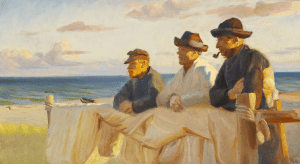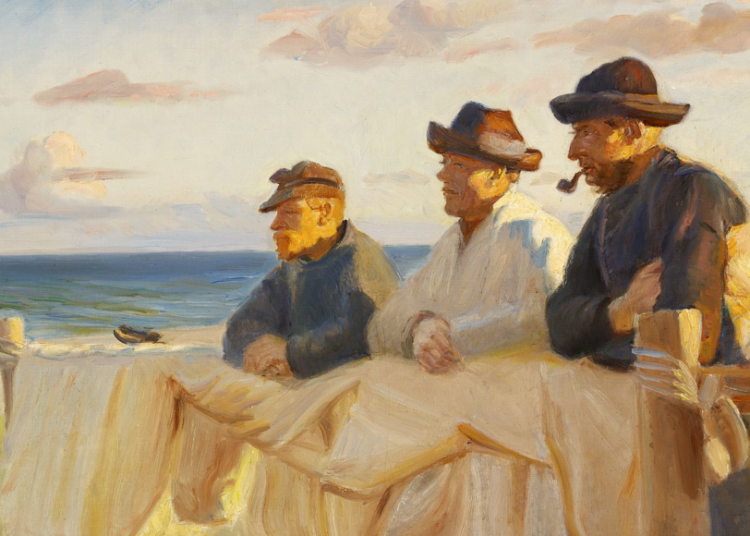All social entities or movements need dreams, which can be defined as an indispensable capacity to envision a future for themselves that considers both the practical means at hand and a higher ideal. Societies that do not dream are doomed to die.
 The left faces a new challenge that is leaving its activists troubled. Over the past few years, many high-profile leftist figures, writers, and politicians have turned right. They defected to the other side, and embarrassed leftists don’t know what to do about it.
The left faces a new challenge that is leaving its activists troubled. Over the past few years, many high-profile leftist figures, writers, and politicians have turned right. They defected to the other side, and embarrassed leftists don’t know what to do about it.
In an op-ed in The New York Times, columnist Michelle Goldberg asks some soul-searching questions about what is causing the shift and why it’s important. She cites an extensive report in the well-known leftist publication, In These Times, which tells the stories of turncoats like former environmentalist Robert F. Kennedy Jr., Occupy Wall Street activist Matt Taibbi or liberal feminist writer Naomi Wolf.
“Almost everyone I talk to tells me about people they have lost ‘down the rabbit hole’ – parents, siblings, best friends, as well as formerly trusted intellectuals and commentators,” writes the well-known leftist writer Naomi Klein. “People, once familiar, who have become unrecognizable.”
Dealing With Turncoats
The standard leftist ways of dealing with turncoats—deny and defame—will not work. Leftists cannot just write off these figures since they are well-known people with huge followings. Given their contributions to the movement, they cannot claim they were never real leftists. The In These Times authors note that many of these people are also intimate friends “that you struggle to hold onto despite their growing allegiance to terrifying ideas.”
Something has gone wrong with the left. To explain the crisis, the left must contradict cherished myths, abandon its utopic visions of the future, and look for new ways of describing reality.
An Unwelcoming Culture
The Goldberg article claims there are three problems plaguing the left that help explain the apostasy of its celebrities. All of them require acting outside its old orthodoxy.
The first is the culture of the right is more welcoming than the left. Those approaching rightists are treated better—and although she does not say it—with Christian charity. The left does not have anything similar within its ranks.
It is hard to admit it, but the left’s unwelcoming culture can be rather nasty, sarcastic, and crude.
Lost Hope for the Future
The second problem is more serious and profound. Marxist dialectic theory posits that history constantly evolves and progresses to ever greater forms of freedom and equality.
However, history is not cooperating with this fatalistic vision of history (read Roe v. Wade, for example). Thus, there is “a crisis of faith in the possibility of progress.”
Everything seems stuck. Leftists are stuck developing policy ideas addressing current problems but cannot construct a compelling vision of the future.
No Concrete Plans for a Radical Transformation of Society
Leftists know what they want to dismantle—tradition, patriarchy, the nuclear family, property, and capitalism. However, they do not have a credible plan for a radical transformation of society. Everything is shrouded in abstract Marxist jargon with little practical application.
Hence, some activists are losing hope and looking elsewhere, including rightward.
The Right-Wing Advantage
Ms. Goldberg claims the right has an advantage over the left in this field. It does not have to present an abstract vision of the future. It offers the security of a return to a past Christian order.
The left may hate and distort this order, but it cannot deny its existence and verifiable claims. This Christian order points to highly attractive historical accomplishments, cultural developments, and heroic feats. Conservatives can have recourse to the memories of happier times. The Left’s memories of past utopian nightmares like communism are not so happy.
The Need for Beautiful Dreams
The loss of hope has the effect of fragmenting the left. The recalling of memories is uniting the right.
The In These Times report claims, “We’ve witnessed more right-wing factions converging than splitting, putting aside differences and adopting new and ugly dreams,” which they see as beautiful.
Ms. Goldberg complains that “the left needs beautiful dreams of its own.”
Either Dream or Die
All social entities or movements need dreams, which can be defined as an indispensable capacity to envision a future for themselves that considers both the practical means at hand and a higher ideal. Societies that do not dream are doomed to die.
“We have no knowledge of any human community where men do fail to dream,” writes Irving Kristol. “Which is to say, we know of no human community whose members do not have a vision of perfection—a vision in which the frustrations inherent in our human condition are annulled and transcended.”*
Why Celebrities Leave the Left—No Dream
This lack of a dream signals a deep crisis inside the left that cannot be underestimated. It is an existential problem that leaves it without an achievable goal. The past notions of socialist utopias are unraveling in a woke nightmare of identity politics and irrational discourse that attracts no one.
Celebrities are leaving the left because there is nothing left to appeal to their rational minds. The socialist agenda is hollow, unwelcoming and incoherent.
For all its defects, the rightist vision still seeks after beautiful dreams. It can always appeal to that audacious dream of an order turned toward Christ that so transformed the West.
The Imaginative Conservative applies the principle of appreciation to the discussion of culture and politics—we approach dialogue with magnanimity rather than with mere civility. Will you help us remain a refreshing oasis in the increasingly contentious arena of modern discourse? Please consider donating now.
*Kristol, Two Cheers for Capitalism, 153.
The featured image is “At the end of the working day. Three fishermen enjoying the late afternoon sun” (1902), and is in the public domain, courtesy of Wikimedia Commons.


